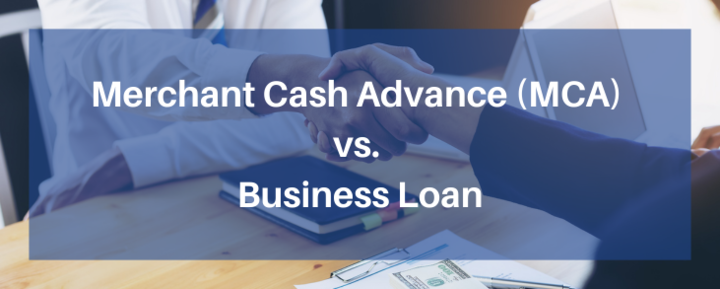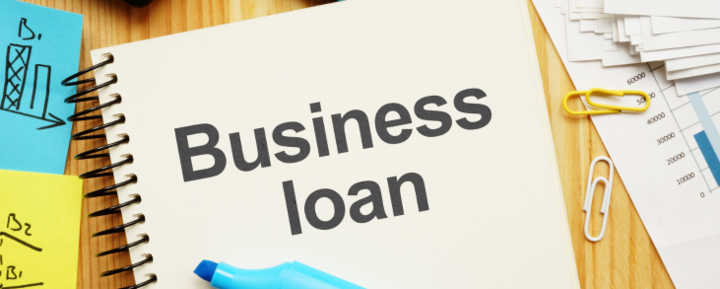If your company is experiencing financial problems, filing for bankruptcy doesn’t always mean closing your doors. Depending on your business structure, financial situation, and the type of business bankruptcy you file, you may be able to reorganize your debts and continue operating. Here’s what small business owners need to know about staying open during bankruptcy.
Can a Business File Bankruptcy and Keep Operating?
In many cases, a business can continue operating while in bankruptcy. The outcome largely depends on the chapter of bankruptcy filed and the business’s long-term viability.
Understanding Business Bankruptcy Options
There are generally three different types of bankruptcy you can pursue as a small business to get legal protection from creditors. Here’s a quick summary of how each one works.
Chapter 7: Liquidation
Chapter 7 involves selling off business assets to pay creditors, giving you a fresh start. Most businesses must shut down after filing, though sole proprietorships may continue operating under certain circumstances.
Keep in mind that liquidation won’t necessarily shield owners from liability, particularly if you signed a personal guarantee for certain debts. For this, you’d need to use personal assets to pay off the debt.
Chapter 11: Reorganization
Chapter 11 allows incorporated businesses, such as a limited liability company (LLC), C corporation or S corporation, to reorganize debt and continue operations. It’s often used by businesses that need time to restructure and return to profitability.
You’ll need to submit a plan of reorganization and then work with a court-appointed trustee to complete it. If you fail to successfully reorganize your business, however, your bankruptcy case may be converted to a Chapter 7 bankruptcy, at which point assets will be liquidated.
Chapter 13: Debt Restructuring
While typically reserved for individual debtors filing personal bankruptcy, Chapter 13 may apply to sole proprietors. It enables debt restructuring through a court-approved repayment plan, allowing the business to stay open.
You may also be able to use Chapter 13 bankruptcy to discharge a personal guarantee, though that won’t eliminate the company obligation to pay.
Filing Bankruptcy While Continuing Business Operations
If you file for Chapter 11 or Chapter 13 bankruptcy, here’s how you might be able to continue operating your business while working through your debt situation.
Staying Open Under Chapter 11 Bankruptcy
Chapter 11 enables businesses to operate as a “debtor in possession,” meaning management remains in control of daily operations while working to restructure debt under court supervision.
You’ll need to submit a reorganization plan outlining how you intend to repay your creditors over time. The plan can include reducing expenses, renegotiating contracts, or selling non-essential assets.
The debtor in possession continues to run the business but must report regularly to the bankruptcy court and obtain approval for major decisions, such as asset sales or new financing.
Operating Under Chapter 13 Bankruptcy
Sole proprietors who file under Chapter 13 can include both personal and business debts in a structured repayment plan, making it possible to maintain operations while catching up on liabilities.
Effective restructuring may involve:
- Reducing workforce
- Cutting other overhead expenses
- Selling underperforming assets
- Refinancing existing debt
Your repayment plan may be restructured with a three to five-year term, after which any remaining debt will be discharged. In some cases, you may be able to secure lower interest rates or monthly payments.
Advantages of Staying Open During Bankruptcy
If you’re unsure of a way forward, even with bankruptcy protection, it might make sense to stay open. However, staying open during bankruptcy can offer several benefits if you feel like your business has a viable future.
The bankruptcy process can give you time to reorganize and recover financially, and the continued revenue from operations can support your repayment.
If you have multiple employees and customers, you’ll also be able to preserve much-needed jobs and valuable customer relationships, which can improve your chances of recovery.
Challenges of Operating During Bankruptcy
While there are some clear benefits to keeping your doors open, don’t expect a cakewalk.
Filing for bankruptcy may affect customer trust and vendor relationships, and legal reporting requirements and court oversight can also make your daily operations more complicated. In particular, you’ll need to closely monitor cash flow and meet strict payment obligations.
Finally, operating in bankruptcy often means limited access to credit, which can limit your ability to grow different revenue streams.
Alternatives to Filing for Bankruptcy
Depending on your situation, it may make sense to research and compare other ways to manage your business debt. Here are some ideas:
- Debt consolidation: You may be able to avoid bankruptcy by consolidating some of your outstanding debts into a single loan with a lower interest rate or longer repayment term. Keep in mind, though, that debt consolidation may not work if your business and personal credit scores aren’t in great shape.
- Voluntary debt arrangement: Negotiating directly with creditors can result in reduced payments, extended terms, or interest rate adjustments—without the need for court involvement.However hiring an experienced debt management attorney will likely yield better results.
- Debt settlement: If you’ve fallen behind on payments, it could be a good option to negotiate with your lender to pay less than what you owe. Find the most reliable source of debt settlement which is usually a business focused debt law firm.
Important Legal and Financial Considerations
While bankruptcy may be the right move for your business, it’s important to understand the legal and financial implications.
A debt relief attorney can help evaluate your business’s financial health, explain your available options, and guide you through the process with minimal disruption. If you decide to move forward, note that the bankruptcy code comes with strict procedures and deadlines.
Professional legal advice can help you meet legal requirements and increase the chances of a successful outcome.
Conclusion: Is Filing Bankruptcy and Staying Open Right for Your Business?
Filing for bankruptcy doesn’t have to mean shutting down. With the right plan, legal guidance, and financial strategy, your business may be able to restructure, recover, and thrive. If you’re considering this path, consult a qualified debt relief attorney to determine the best next steps for your situation.
For over two decades, the team at Tayne Law Group has provided trusted business debt relief solutions nationwide. If you’re facing financial challenges, looking for an alternative to bankruptcy reach out for a free, no-obligation phone consultation at (866) 890-7337 or complete our short contact form. Your information is always kept confidential and never shared. We’re here to provide answers to your debt-related questions and help you explore your options, no matter where you’re located.





